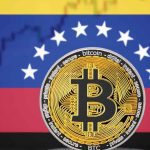In Argentina, there are 5 million crypto users. The exchanges together with the Fintech Chamber promote a law that regulates them, respecting their nature.
The cryptocurrency industry is experiencing a series of key discussions to obtain a true crypto asset law that takes into account the more than 5 million users in Argentina and values such as freedom and transparency. In recent weeks, the exchanges in conjunction with the Argentine Fintech Chamber opened the debate around a tax reform that stimulates the adoption of cryptocurrencies in the country.
On April 19, 2023, the project to reform the national PLA/CFT regulatory system promoted by the UIF (Financial Information Unit) obtained half a sanction in the Chamber of Deputies. This is a law that reforms the national system of prevention and prosecution against money laundering, which incorporates the possibility of creating a Registry of Virtual Asset Service Providers. It will be the National Securities Commission (CNV), the body in charge of the registration, regulation, and supervision of PSAVs. After this half-sanction, he is still waiting in Senators awaiting treatment.
Through this law, the CNV will then have the power to:
- Supervise, regulate, inspect, and supervise human persons and companies that provide crypto services
- Keep records and protect the interests of investors and/or users.
- Establish asset requirements.
- Promote the development and strengthening of the industry
- Establish information regimes
- Dictate regulations on transparency and stability of crypto markets.
Meanwhile, on Friday, July 14, 2023, the FIU presented its draft regulation of the crypto-asset laundering prevention system at an institutional meeting in front of organizations and companies in the fintech and crypto sectors. There were proposals from both sides to advance how the law would be applied in addition to expressing the needs of the sector, under the guidelines recommended by the FATF, the international governing body for the prevention of money laundering and the financing of terrorism.
But in the last week, a novelty emerged that comes from the exchange side. Lemon together with the Argentine Fintech Chamber presented a tax reform proposal that is summarized in three points:
- The Personal Property Tax Exemption for crypto
- Increase the non-taxable minimum crypto income tax to more reasonable amounts
- Eliminate taxes for crypto transactions
“It is not about inventing anything new, but about accompanying with a favorable tax regime a regulation that promotes the industry, as is the case in countries like Portugal. As an industry, these spaces for dialogue with regulators allow us to raise the need to not be treated equally to a Capital Market and defend the values for which the crypto ecosystem was created. We are a new industry that is paving the way for new technologies that solve new-age problems,” said Lemon after Ámbito’s consultation.
The reform would be part of the projects that seek to promote the development of the industry in Argentina through a broader legal framework where the reform project to the Anti-Laundering Law is added.
Opacity in regulation: what happens with crypto taxes in Argentina
Although in Argentina there is still no clear tax framework for various operations with cryptocurrencies, there are different regulations, opinions, and resolutions, both at the national and provincial levels, that reach the industry and its users.
Personal Assets, Income Tax, and the most recent law that taxes cryptocurrency mining in the province of Buenos Aires are currently the three regulations that users of digital currencies must pay attention to when making their sworn declarations and complying with their tax obligations. However, these regulations today present gray areas in terms of their definitions.
Ricardo Mihura Estrada, president of the NGO Bitcoin Argentina, in dialogue with ambito, explained that the Personal Property Tax law already exempts the possession of intangible assets, among which are all crypto assets that do not carry a credit right for the holder. “The latter, those that represent credits such as centrally issued stablecoins, are taxed as such, but Bitcoin, ETH, and all decentralized cryptoassets are already exempt.”
“The AFIP currently does not share this interpretation. The justification for this exemption is the same as for other intangible assets: to promote innovation and creativity, encouraging people and companies to develop and maintain valuable intangible assets without the burden of a tax on them, in addition to Their valuation can vary drastically from one moment to the next.”
At the same time, he maintains that “the worst drama of the tax regulation of profits from the sale and purchase of crypto assets is its terrible drafting and legal conception. It is not really understood what the law meant. There are results that it is not known if they are taxed at 5%, 15%, or 35%, with adjustment for inflation or exchange differences or without such adjustments in the computable cost. Since the law was passed in 2018, we have been denouncing this lack of clarity but neither the regulations nor the AFIP have shed light on the issue. This is serious, since it may be safer to keep the results undeclared than to risk declaring them under misleading legislation.”
The view of the sector: what a crypto law has to have in Argentina
For Mihura, “good regulation should start from the basis of distinguishing that in the cryptoeconomy there are three universes, and there will continue to be:
- Cryptoassets and centralized platforms willing to submit to regulations to better reach their clients and interact with the banking system;
- Global centralized crypto-assets and platforms, which are not interested in submitting to any jurisdiction, and even less so to Argentina, and
- Decentralized cryptoassets and platforms, which once put into operation simply function without intervention or subjection to human will…
“Recognizing these three universes, the regulator should establish friendly and reasonable rules to try to bring the first group to the greatest number of centralized cryptoassets and platforms, because there they can be better supervised for the benefit of users and all types of criminal investigation,” he added.
On the other hand, it maintains that “with respect to those who remain in the second group, the law must make it easier for the affected users (when there are any, naturally) to file a claim against all those who in some way profit or benefit from their operation, regardless of where they are located, and what relationship they have with the creators of those crypto assets and platforms. The third set, that of decentralized cryptoassets and platforms, which mainly includes bitcoin and other protocols in different degrees of development and decentralization, must be left outside of any regulatory pretensions so that users can operate at their own risk and benefit.
From the industry, they maintain the need not to be treated like the Capital Market. “Not projecting regulations in this sense would mean ignoring the particularity of this new sector of the economy, and treating it with notoriously inadequate tools,” they concluded from Bitcoin Argentina.
While debates continue around this issue, the US and other countries do not know very well how to deal with this nascent industry, especially in relation to the tax part. Even recently, the North American country proposed that cryptocurrency intermediaries would have to communicate information about sales and transactions of users’ digital assets.
This rule is part of a broader attempt by Congress and regulators to crack down on cryptocurrency users who may be failing to pay their taxes.
According to the Treasury Department, a new tax return form called Form 1099-DA is proposed to help taxpayers determine if they owe taxes and prevent cryptocurrency users from having to do complicated calculations to determine their earnings. It would also subject digital asset dealers to the same reporting rules as dealers in other financial instruments, such as bonds and stocks, the Treasury said. Until now, governments have been running from “behind” and the greatest difficulty is established in the very nature of a sector that is free and decentralized.











